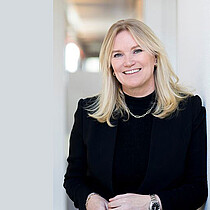

Interview: Friday, 14 February 2025
As the Part-Time PhD programme at Rotterdam School of Management, Erasmus University (RSM) celebrates its 10th anniversary, we sit down with two prominent professors, Mijntje Lückerath of Tias School of Business and Society and Muel Kaptein of RSM, who just started with a new cohort of 8 part-time PhD students focusing on ethics in the boardroom. This initiative marks the first year of their exploration into how ethical dilemmas manifest at the highest levels of decision-making in organisations.

TIAS Tilburg University

Could you tell us how the focus on ethics in the boardroom came about?
Mijntje Lückerath: Muel and I have worked together for over 15 years, particularly on corporate governance, and I’ve always had a strong interest in the intersection of ethics and decision-making. A few years ago, I published a book on moral dilemmas in the boardroom because I felt that public perception often oversimplifies the ethical challenges faced by top executives. The assumption that decisions are either right or wrong doesn’t capture the complexity of real-life scenarios.
Muel Kaptein: Exactly. While Mijntje comes from a background in corporate governance, I’ve focused more on ethics in management. We’ve always seen great value in combining our expertise, especially when it comes to the critical ethical decisions leaders face. Last year, we realised that we needed to build a stronger academic foundation around the topics Mijntje had explored in her book. That’s when we decided to take it further and launch this new research initiative with a deeper, more rigorous approach.
What made you decide to engage PhD candidates in this specific research?
Mijntje Lückerath: We were discussing how to take this research further, and the idea of involving PhD candidates came up. The topic of ethics in the boardroom is so relevant, and we knew that involving a diverse group of researchers would give us the fresh perspectives we needed. Last year, we made an open call via LinkedIn, expecting to get a handful of applications. To our surprise, over 20 people reached out. We interviewed about 10 of them, and, honestly, we were thrilled when all eight of the final candidates were accepted into the programme. It’s a diverse group, and we’re excited to see the impact their research will have.
Muel Kaptein: It’s fascinating to see how they’re approaching the topic. The boardroom is a place where decisions are made by some of the most experienced professionals, but we’re trying to understand how those individuals grapple with moral challenges. These aren’t always black-and-white issues; there’s a lot of nuance. We believe there’s much to learn from studying their ethical decision-making, not just for today’s managers, but for the next generation of leaders too.
Can you share a specific example of an ethical dilemma in the boardroom that might give our readers a sense of the challenges these leaders face?
Muel Kaptein: Well, Mijntje, you might be able to provide a great example from your book. The dilemmas leaders face can vary widely –from questions of corporate social responsibility to more personal, integrity-based decisions. One example that comes to mind is when board members are faced with a decision that benefits the company in the short term but could have long-term negative implications for society. It’s a decision that could affect stakeholders, the environment, or even public perception. It’s these kinds of challenges that really put leaders to the test.
Mijntje Lückerath: Yes, and these dilemmas are not always clear-cut. For example, imagine a situation where a company needs to make a harsh decision that negatively impacts current employees but is necessary for the wellbeing of future employees, the continuity of the brand, and even for the environment. Board members must now weigh the conflicting interests of these different stakeholders and moral norms, thus for example, loyalty to current employees, the wellbeing of future employees, stakeholder trust, and environmental impact. It’s a complex balancing act; the right choice isn’t always immediately apparent. There is also the example of companies in Russia. Do you pull out immediately to take a stand against the war with Ukraine? Or do you stay for a while to support your workers and their families, for whom you also feel a huge responsibility and you probably know personally? It even gets more complicated when the outside world has a clear view of what you should do, but they do not see all the consequences nor have a personal connection with the workers. It takes some courage to take all the backlash associated with such an unpopular decision, especially when you thought you did the right thing.
These are exactly the kinds of scenarios that make your research so crucial. How do you think this work will affect board members in the future? What impact do you hope these PhD researchers will have?
Muel Kaptein: One of the things we’re most excited about is the potential for our research to provide practical tools for board members. Our goal is to create a kind of “toolbox” that they can use to navigate these ethical dilemmas. It’s not just about theoretical concepts –it’s about offering actionable solutions for real-world decision-making. We want to help leaders understand the ethical dimensions of their choices and give them the frameworks to make more informed decisions that consider both short-term and long-term consequences.
Mijntje Lückerath: That’s right. We also hope that by bringing these issues to the forefront, we can begin to reshape how board members think about ethics. We want to create a space where ethical decision-making is not only seen as a moral imperative but as a key component of successful leadership. If leaders can make ethical decisions that benefit society as a whole, they will not only build trust with stakeholders but will also contribute to the long-term success and sustainability of their organisations.
It seems like your research has the potential to transform boardroom cultures. How are you ensuring that the research remains relevant to both academia and the business world?
Mijntje Lückerath: A big part of our approach is ensuring that we share our findings early with professionals in the field. We will have regular seminars in which PhD candidates present their research to board members, advisors, and entrepreneurs. This ensures that the research is not only theoretical but also grounded in real-world practice. It’s a dynamic, ongoing process of engagement, and we believe it will result in meaningful outcomes that can be applied by current and future leaders.
Muel Kaptein: We’re also making an effort to translate academic insights into practical, accessible formats. The board ethics toolbox we aim to develop will be designed to help board members directly apply ethical concepts to their daily work. We want to empower them with the knowledge to make better decisions that are both ethically sound and aligned with their organisational goals.
In conclusion, the research on board ethics led by Mijntje Lückerath, Muel Kaptein, and their team is paving the way for a more ethical approach to governance. By combining rigorous academic research with practical insights from experienced professionals, the project is not only contributing to the academic field but also creating real-world tools that will help shape the future of ethical decision-making in boardrooms. The collaborative nature of the work and the diverse perspectives of the participants ensure that the research will have a lasting impact on both academia and practice.
Mijntje's book is available here: https://link.springer.com/book/10.1007/978-3-031-65269-1


Science Communication and Media Officer
Rotterdam School of Management, Erasmus University (RSM) is one of Europe’s top-ranked business schools. RSM provides ground-breaking research and education furthering excellence in all aspects of management and is based in the international port city of Rotterdam – a vital nexus of business, logistics and trade. RSM’s primary focus is on developing business leaders with international careers who can become a force for positive change by carrying their innovative mindset into a sustainable future. Our first-class range of bachelor, master, MBA, PhD and executive programmes encourage them to become to become critical, creative, caring and collaborative thinkers and doers.
